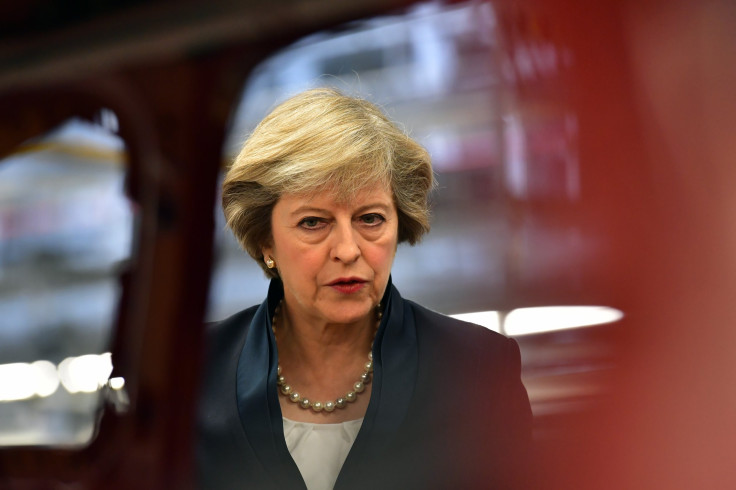Brexit’s ‘Global Britain’: UK Needs A Clear Economic Strategy For Its Trading Future, Not A Dead Colonial Fantasy

Since the Brexit vote, the UK government has championed the notion of “Global Britain” as a vision for the country’s future outside the EU. But what does Global Britain actually mean?
For the government, it appears to mean a Britain trading freely across the world, as in the days of the empire. For many on the right, membership of the EU has held back the country from doing so and Brexit offers an opportunity to address the problem. As Theresa May put it:
It is time for Britain to get out into the world and rediscover its role as a great, global trading nation.
The government recommends that Britain boosts trade links with the former colonies of the empire – countries that are now members of the Commonwealth (such as India and Nigeria) and/or the so-called “Anglosphere” (Australia, Canada, New Zealand, USA).
In this way, we are told, Britain will become great again and even help “transform the world for the better”. This sounds reasonable, but scratching beneath the surface reveals that Global Britain is based on little substance and, worse still, a bad imperialist idea.
Alternative to the EU
To begin with, the economic benefits of Global Britain are far from clear. In 2016, the then US president, Barack Obama, stated that Britain would go to the “back of the queue” in trade negotiations should it leave the EU. This is not surprising, given the UK has long been America’s gateway into Europe. Leaving the EU would in effect weaken US bargaining power in Europe and, in turn, erode, rather than strengthen, UK-US trade relations.
Gaining access to the US market would become much harder and would likely lead to Britain accepting US demands on labour and environmental standards, which would be, as a former EU director-general for trade claimed, “tantamount to becoming the 51st state on economic questions without the right to vote”. This is why some arguethat if Britain wants to be a great global nation it needs to actually stay in the EU.
The trade potential with other Anglosphere states is also not so obvious, with those countries now set on developing relationships in their own regions. In Australia, for instance, the prevailing view is that the country’s economic future lies in the proposed Regional Comprehensive Economic Partnership which would include Australia, China, India, Japan, New Zealand and South Korea as well as the 10 ASEAN (Association of South East Asian Nations) member states: Indonesia, Thailand, Singapore, Malaysia, Vietnam, Philippines, Cambodia, Brunei, Myanmar (Burma) and Laos.
There may be more potential with India, the Commonwealth’s most important economy, although there are significant uncertainties. One difficulty is the current UK anti-migration stance, including the decision in 2011 to scrap post-study visas. This has raised concerns in India where leaders have made it clear that visa leniency will be key to a closer trade relationship post-Brexit. Meeting this demand won’t be easy given immigration was one of the concerns that led to the Brexit vote in the first place.
Another concern is that the EU is India’s largest trading partner and the two parties have been in talks about a free trade agreement for more than a decade. Brexit may in fact help in delivering such an agreement, given two main British hurdles to EU negotiations with India: post-study visas and the longstanding demand that India lowers its sky-high tariff on Scotch whisky. Plus, France has been working hard to replace Britain as India’s bridge to Europe.
As for Britain’s former colonies in Africa, most of these are relatively small economies that by no means provide an alternative to the EU’s single market. Besides, European powers are fast losing ground to China on the African continent – especially in Anglophone Africa.
Yearning for empire
Global Britain appears to be more of a neo-colonial fantasy. Rather than being motivated by a clear economic rationale, the project is largely motivated by a nostalgia for the UK’s imperial past evident in the language used by the Brexiteers in the last few years – for example UKIP’s James Carver assertion that, outside the EU, “the world is our oyster, and the Commonwealth remains that precious pearl within”.
This fantasy is symptomatic of, and directly fuels, the “post-colonial melancholia” that has afflicted Britain since the decline of its empire. Perhaps more than any other former European colonial power, Britain has struggled to come to terms with the loss of its imperial possessions and privileges. This is in part due to an education system that says little about the horrors and inequities of British imperialism and, worse still, is encouraged by government to celebrate the empire – the language of Global Britain is testament to that.
Real politik
This Global Britain fantasy is undesirable and self-defeating. For one, it ignores and consciously erases the brutal history of the empire, including its transatlantic slave traders and plunderers and its genocidal settler colonialism in places now called Canada, Australia, New Zealand and the USA, where indigenous peoples were routinely slaughtered.
This history makes the goal of rediscovering Britain’s role as “a great, global trading nation” not only a shameful approach to international trade post-Brexit but also counterproductive. Why would former colonies embrace a Britain that not only refuses to atone for its colonial sins but worse still, envisions its future as “Empire 2.0”?
The idea of Global Britain is simply the last gasp of a dying empire. Britons can either prolong the agony or work towards a new Britain, one that’s finally come to terms with its colonial past and ready to engage with the world on non-imperialist terms. The EU may or may not be the way forward, but the Global Britain narrative is likely to prove counterproductive either way.
Mehdi Boussebaa is a professor, University of Glasgow.
This article originally appeared in The Conversation. Read the article here.






















